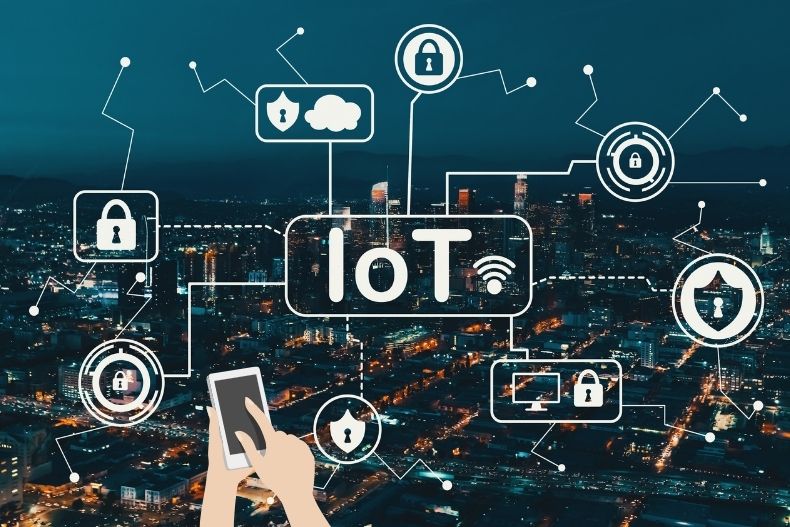In today’s digital age, the Internet of Things (IoT) has transformed the way businesses operate. From smart cities to connected devices, IoT technology is rapidly becoming a critical part of modern business operations. And with the advent of IoT sim cards, companies can now take full advantage of this cutting-edge technology and improve their bottom line like never before. In this blog post, we explore why every business needs to consider implementing IoT sim cards now and how it can revolutionise your operations in ways you never thought possible. So get ready to discover the future of business with IoT!
Introduction to IoT Sim Cards
The Internet of Things (IoT) is one of the hottest topics in the tech world today. And for good reason – the IoT has the potential to revolutionise the way we live and work. But what exactly is the IoT? Simply put, the IoT is a network of physical devices – including everything from cars and appliances to manufacturing equipment – that are connected to the internet and can communicate with each other.
One of the key components of an IoT system is an IoT sim card. An IoT sim card is a special type of sim card that’s specifically designed for use in devices that are part of the IoT. These sim cards have a number of advantages over traditional sim cards, including:
• Increased data capacity: IoT sim cards can store more data than traditional sim cards, which is important for applications that require large amounts of data, such as video streaming or monitoring sensor data.
• Lower power consumption: Since IoT devices are often battery-powered, it’s important to have a sim card that doesn’t drain too much power. IoT sim cards are designed to be as power-efficient as possible.
• Enhanced security: One of the biggest concerns with the IoT is security. An IoTsim card can help to secure your device by providing features such as encryption and remote management capabilities.
If you’re considering implementing an IoT solution for your business, then you need to consider using an IoT sim card.
Benefits of Using IoT Sim Cards for Businesses
IoT sim cards offer a number of benefits for businesses, including:
1. Cost savings: IoT sim cards can help businesses reduce their mobile data costs by up to 80%.
2. Improved coverage: IoT sim cards offer improved coverage and signal strength in areas where traditional cellular service is weak or spotty.
3. Increased security: IoT sim cards come with built-in security features that helps protect businesses from data breaches and other cyber threats.
4. Scalability: IoT sim cards are designed to scale easily as businesses grow and add more devices to their network.
5. Flexibility: IoT sim cards offer businesses the flexibility to choose from a variety of data plans that best fit their needs.
Different Types of IoT Sim Card Technologies
There are a few different types of IoT Sim card technologies currently available on the market, and each has its own set of pros and cons. Here is a brief overview of the most popular types of IoT Sim cards:
1. GSM/GPRS Sim Cards: These are the most common type of IoT Sim cards, and they offer good coverage and data speeds. However, they are not as widely supported by devices as other types of IoT Sim cards.
2. CDMA Sim Cards: These Sim cards offer good coverage and data speeds, but they require a separate data plan from your voice plan. They are also not as widely supported by devices as other types of IoT Sim cards.
3. LTE-M Sim Cards: These are the newest type of IoT Sim cards, and they offer very high data speeds and coverage. However, they are not yet as widely supported by devices as other types of IoT Sim cards.
How to Choose the Right IoT Sim Card for Your Business
There are a few factors to consider when choosing the right IoT sim card for your business. The first is data usage. How much data do you need for your devices? The second is coverage. What areas do you need coverage in? And the third is price. How much can you afford to spend on your IoT data plan?
To figure out your data usage, start by looking at how much data your devices use now. If you’re not sure, there are plenty of online calculators that can help you estimate. Once you have a number in mind, multiply it by the number of devices you plan to connect. This will give you a good idea of how much data you’ll need for your IoT sim cards.
As for coverage, most cellular providers have good coverage in major metropolitan areas. But if you need coverage in rural areas or outside of the country, you’ll want to make sure your provider has roaming agreements in place. Otherwise, you may be stuck with spotty service or no service at all.
Take a look at the price. IoT sim cards can cost anywhere from a few £’s per month to hundreds of £££’s per month depending on your data needs and coverage requirements. Choose a plan that fits your budget and provides the features and flexibility you need.
The Challenges of Implementing and Managing an IoT Sim Card Network
One of the key challenges of implementing and managing an IoT Sim card network is gaining visibility into the data usage, as well as understanding how to optimise performance and troubleshoot issues. In addition, it can be difficult to manage different types of devices on the same network, and ensure that each has the appropriate level of access. Another challenge is keeping track of inventory and managing upgrades or downgrades in service.
Security and Privacy Concerns with IoT Sim Cards
IoT sim cards are becoming increasingly popular as they offer a number of advantages for businesses. However, there are also some security and privacy concerns that need to be considered when using these devices.
One of the main security concerns with IoT sim cards is that they can be used to track the location of a device. This means that if a device is lost or stolen, the owner will be able to track its location. Additionally, if a device is used in an area where there is no cell service, it can still be tracked using GPS.
Another concern is that IoT sim cards can be used to eavesdrop on conversations. This is because the microphone on the device can be activated remotely and used to listen in on conversations. Additionally, the camera on the device can also be activated remotely and used to take pictures or videos without the user’s knowledge.
There is a concern that IoT sim cards can be used to send spam or malware to other devices. This is because many IoT devices do not have adequate security measures in place to protect against these threats.
While there are some security and privacy concerns that need to be considered when using IoT sim cards, these devices still offer a number of advantages for businesses. These advantages include the ability to track devices, increased security for data transmission, and lower costs for connectivity.
Conclusion
IoT Sim cards are quickly becoming the go-to solution for businesses of all sizes, and it’s easy to see why. They offer a reliable connection, increased data security, and improved connectivity that can help any business stay ahead of the competition. If you want to maximise your efficiency and make the most out of your tech investments, now is the time to start considering implementing an IoT Sim card solution in your operations. It could be just what you need to bring your business into the 21st century!



